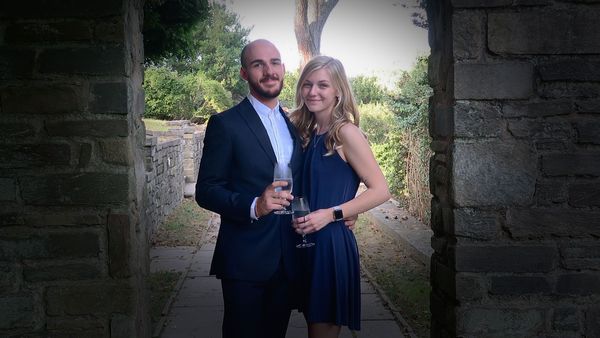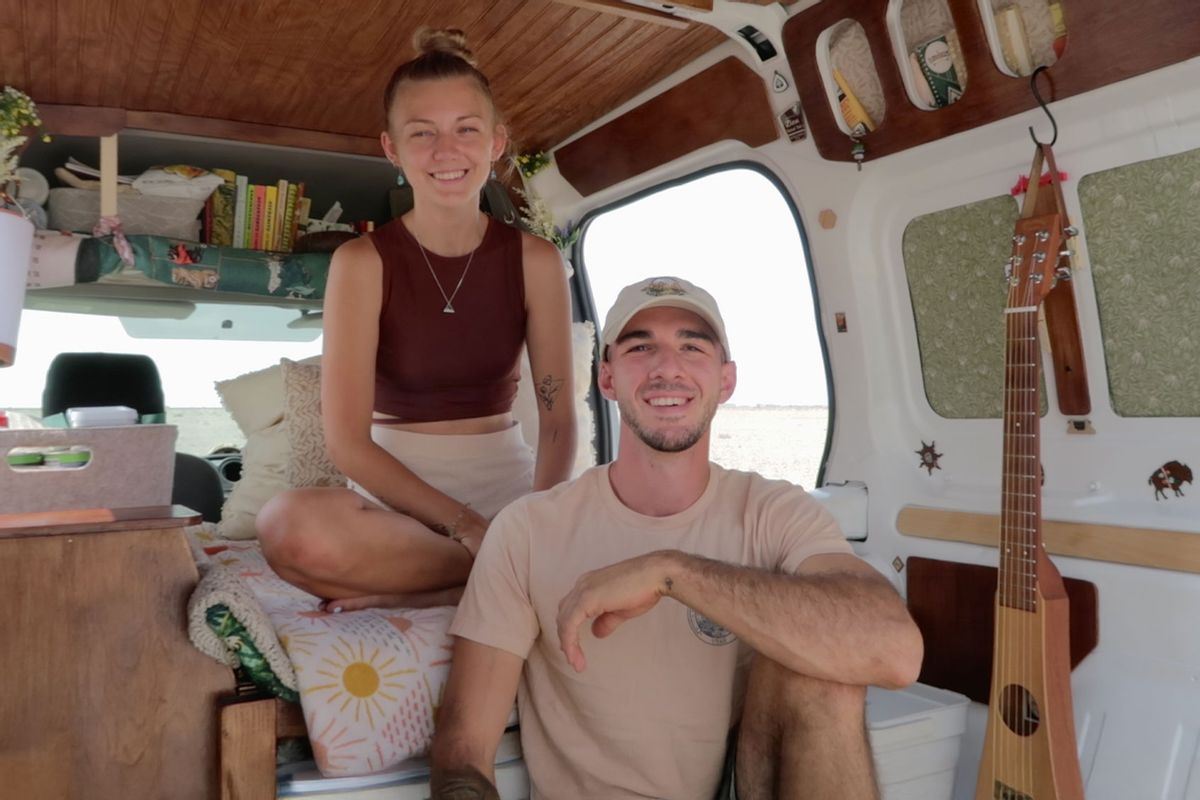In July of 2021, Gabby Petito and her fiancé, Brian Laundrie, set out on a van-life adventure, hoping to document their travels and launch Petito’s YouTube career. The young Florida couple downsized their belongings and hit the road, ready to embrace a nomadic lifestyle, but their dream trip ended in tragedy.
Domestic disputes between Petito and Laundrie escalated, leading to Petito’s disappearance and sparking nationwide interest in her case. A federal investigation was launched to find the missing 22-year-old. Weeks later, Laundrie, the prime suspect, died by suicide, leaving behind a note admitting he had harmed his fiancée. Ultimately, Petito’s body was found in Grand Teton National Park in Wyoming.
Netflix’s new docuseries, "American Murder: Gabby Petito," dismantles the social media illusion of Petito and Laundrie’s seemingly perfect relationship. Through never-before-seen footage, texts, journal entries and personal accounts from Petito’s friends and family, the series chronicles the couple’s tumultuous dynamic and highlights warning signs of domestic abuse that were overlooked by her loved ones and law enforcement.
Petito and Laundrie began dating in 2019 and got engaged in 2020. According to Petito’s friend, Rose Davis, Laundrie exhibited controlling behavior early on. Before a night out, an inconsolable Petito told Davis that Laundrie had stolen her ID. Davis recalled, "Brian admitted he stole it because he didn’t want her to go out."
Despite his volatility, Laundrie would attempt to make amends. Davis explained, "Brian would give her a bunch of things. She’d get so upset with the way he treated her, but then he’d do this amazing, sweet thing, and she’d say, ‘No, I’m lucky. I don’t deserve him.’"
To fund their cross-country trip, Petito took a job at Taco Bell. Laundrie objected, saying he felt "neglected" and eventually became possessive. Texts between the couple revealed that Laundrie berated her for working there, calling her "disgusting." He later admitted his anger stemmed from fear, telling her, "I worry you’ll leave. It’s just that I couldn’t have my life without you."
Davis described a relentless cycle in which Petito would blame herself for Laundrie’s anger. "She’d say, ‘I don’t deserve him. I’m hurting his feelings. I’m a bad person,’ and he wanted her to feel that way. He enjoyed her feeling that way because then she depended on him again."
 Brian Laundrie and Gabby Petito in "American Murder: Gabby Petito" (Courtesy of Netflix)Before their trip, Petito had started recognizing Laundrie’s controlling tendencies. In her journal, she wrote, "Brian, you know how much I love you. Just please stop crying and stop calling me names. You in pain is killing me."
Brian Laundrie and Gabby Petito in "American Murder: Gabby Petito" (Courtesy of Netflix)Before their trip, Petito had started recognizing Laundrie’s controlling tendencies. In her journal, she wrote, "Brian, you know how much I love you. Just please stop crying and stop calling me names. You in pain is killing me."
She also texted Laundrie: "Don’t try to control me because it only makes me mad. I love you so much, but it’s the way you speak to me that hurts me most."
Davis noted that as Petito became more independent, Laundrie "isolated her." Shortly after these arguments, Petito quit her job, and the couple embarked on their van-life journey. Even in Petito’s footage, tension between them is evident—she often rolls her eyes or scoffs at Laundrie’s comments.
The National Domestic Violence Hotline lists several warning signs of an abusive partner, including demeaning or insulting behavior, extreme jealousy and efforts to isolate a partner from friends or family. Petito’s experiences align with these red flags. Her decision to work at Taco Bell and spend time with friends triggered Laundrie’s controlling tendencies.
Want a daily wrap-up of all the news and commentary Salon has to offer? Subscribe to our morning newsletter, Crash Course.
Their dynamic came to a head in Utah. Just weeks before Petito’s death, a 911 caller reported seeing a man in a white van slapping a woman. When local police pulled them over, Laundrie appeared calm while Petito was visibly distraught. Laundrie told officers he pushed Petito away in self-defense, resulting in scratches on his face. He built rapport with police, even jokingly calling Petito "crazy." Meanwhile, Petito recounted that they had spent the morning arguing after Laundrie locked her out of the van.
Despite her visible distress, officers labeled Petito the aggressor when she admitted she had hit Laundrie first. They separated the couple for the night, taking Laundrie to a hotel. But the pair reunited against police orders and drove hours outside of Utah.
We need your help to stay independent
In the docuseries, Petito’s parents and friends question how law enforcement missed the apparent power imbalance in the couple’s relationship. Public sentiment echoes these concerns: Why was Petito painted as the aggressor? How was Laundrie perceived as the victim?
New research from the University of East Anglia highlights a fundamental misunderstanding of covert abuse. The study notes that subtle forms of abuse can be "mixed with other positive behaviors or performed in a positive way, making them easily excused and normalized in a relationship."
Recognizing these behaviors requires identifying patterns — such as undermining a victim’s perception, shifting their attention away from their own needs, and creating emotional dependence on the abuser.
Domestic abuse is pervasive and often difficult to detect, especially when signs are subtle. Petito’s story is a cautionary tale, one that many survivors of abusive relationships understand all too well. The challenge remains: Are we paying attention and reading between the lines?
If you are experiencing domestic violence, call the National Domestic Violence Hotline at 1-800-799-7233, or go to thehotline.org.



Shares